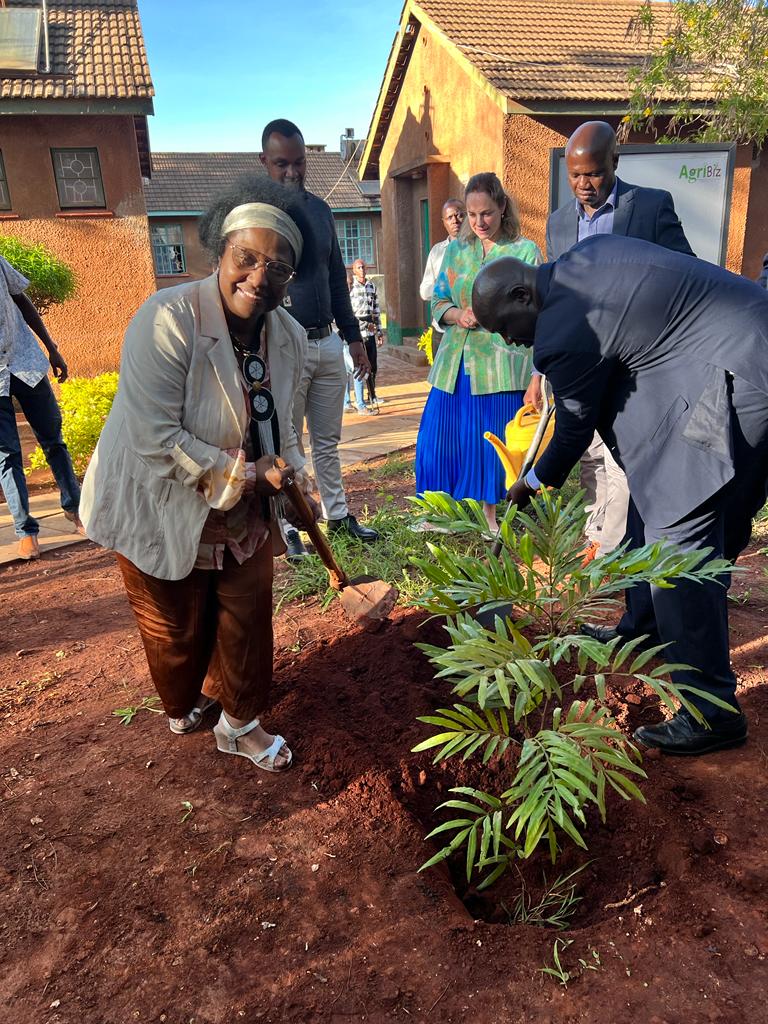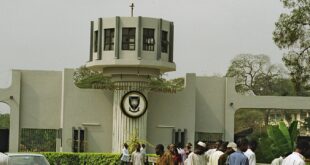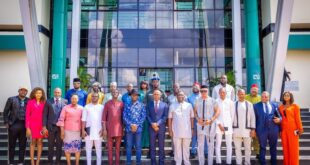Every tree is a living symbol of peace and hope. With its roots deep in the earth and its branches reaching for the sky, it lets us know that in order to aspire to reach higher and higher, we too must be firmly rooted to the ground, for, no matter how high we reach, it is always from our roots that we draw our strength.”
– Wangari Maathai, Nobel Peace Prize Winner 2004
————
Dr Pierrette Herzberger-Fofana MEP was given the honour of planting a tree when a delegation of the European Parliament’s Development Committee (DEVE) recently visited Kenya. She writes about her experience and the significance of tree planting in the East African country
Kenya has made me the ultimate honour of planting a shrub that will become a tree in a few years. This tree was given my name. It symbolises the friendship between Kenya and the European Union (EU). It is a pledge to strengthen our partnership. In this endeavour, the organisers expressed their gratitude to the European Union (EU) for its support in this time of drought.

Dr. Pierrette Herzberger-Fofana planting a tree in Kenya/Photo: PHF
Planting trees has become a tradition in Kenya. Indeed, the Green Belt Movement, founded by Nobel Peace Prize winner Professor Wangari Maathai in 2004, is said to have planted over 51 million trees in Kenya.
The WBG works at local, national and international levels to promote environmental conservation, build climate resilience and empower communities, especially women and girls, and foster democratic space and sustainable livelihoods.
Professor Wangari Maathai’s specific message is that we need to restore our environment and ensure that we do not damage the land to the point that it becomes degraded. In addition, we should plant a tree, as it will last for a long time and benefit future generations.
As part of the EU mission, which took place from 3 to 6 April 2023, and for which I was the head of mission, we visited Machakos, the site of the “Machakos .AgriFI Food Safety Programm” project. This allowed us to see the efforts made by Kenya to face a prolonged drought and the aggravation of the impact of climate change. We also were able to demonstrate support for the European Development Bank’s investments in Kenya.
As a regional peacemaker and energy producer, Kenya is an important economic and political partner for the EU.
Environmental management is about restoring the environment that has been destroyed by human actions and the devastating effects of climate change. In recent years, Kenya has experienced frequent periods of drought, mainly in the arid and semi-arid lands (ASAL).
Food security in Kenya is highly dependent on regular rainfall. Unfortunately, the country is currently experiencing the worst drought in its history. The magnitude of this drought clearly demonstrates the devastating effects of climate change, particularly in Kenya and the Horn of Africa, in general.
Planting a tree is a step in the right direction for finding solutions to the growing social, economic and development challenges caused by climate change. The mission of the European Parliament’s Development Committee, which I had the privilege of leading, is proud to have joined these efforts.
 THE AFRICAN COURIER. Reporting Africa and its Diaspora! The African Courier is an international magazine published in Germany to report on Africa and the Diaspora African experience. The first issue of the bimonthly magazine appeared on the newsstands on 15 February 1998. The African Courier is a communication forum for European-African political, economic and cultural exchanges, and a voice for Africa in Europe.
THE AFRICAN COURIER. Reporting Africa and its Diaspora! The African Courier is an international magazine published in Germany to report on Africa and the Diaspora African experience. The first issue of the bimonthly magazine appeared on the newsstands on 15 February 1998. The African Courier is a communication forum for European-African political, economic and cultural exchanges, and a voice for Africa in Europe.







